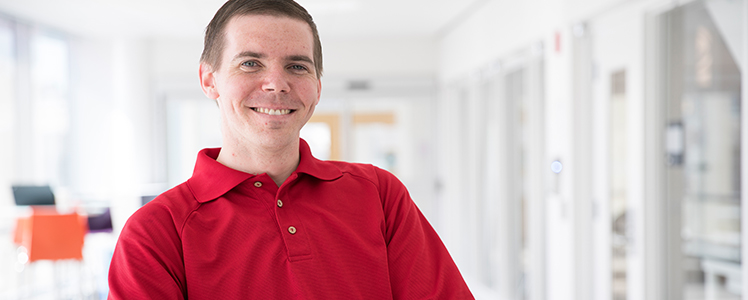Towne Takes Top Prize at HUBweek Hackathon
By Josh Quicksall

Ben Towne, PhD student in Societal Computing, placed first at HUBweek’s first annual hackathon: Data Science, Journalism and the Future of Justice.
HUBweek is a creative “festival for the future” founded by Founded by The Boston Globe, MIT, Harvard University, and Massachusetts General Hospital that brings together innovators in art, science, and technology to envision the future of technology and society.
This non-traditional hackathon pitted teams against one another to present the most compelling case for the use of open data in the future of journalism, focusing on the justice domain.
Leveraging open data from the city of Boston regarding "Field Interrogation and Observation" (FIO) encounters (aka “stop and frisk”), exploratory data analysis by Towne found that racial and gender minorities were disproportionately affected by these tactics. Furthermore, his team demonstrated how the use of these tactics were far from evenly distributed across officers and units, with only eight supervisors out of more than 200 accounting for the majority of cases.
Towne’s PhD advisor and director of the Societal Computing PhD program, Jim Herbsleb, notes that events -- like the HUBweek hackathon -- which foster an interdisciplinary approach are a vital step in the right direction.
“As we move toward a more evidence-based approach to societal problems, it is critical that we nurture a new generation of researchers with the right skills, and give them the opportunity to use them in ways that can have a real impact,” Herbsleb notes.
And although the win - which Towne credits to his training in the Societal Computing PhD program - came as something of a surprise, Herbsleb is less shocked, given Towne’s experience and training. “I think that with his intense interest in solving societal-scale problems, and with his background and training in our Societal Computing PhD program, it was natural for Ben to pick out important issues that could be explored with the FIO data, and to use his analytic skills to find answers.”